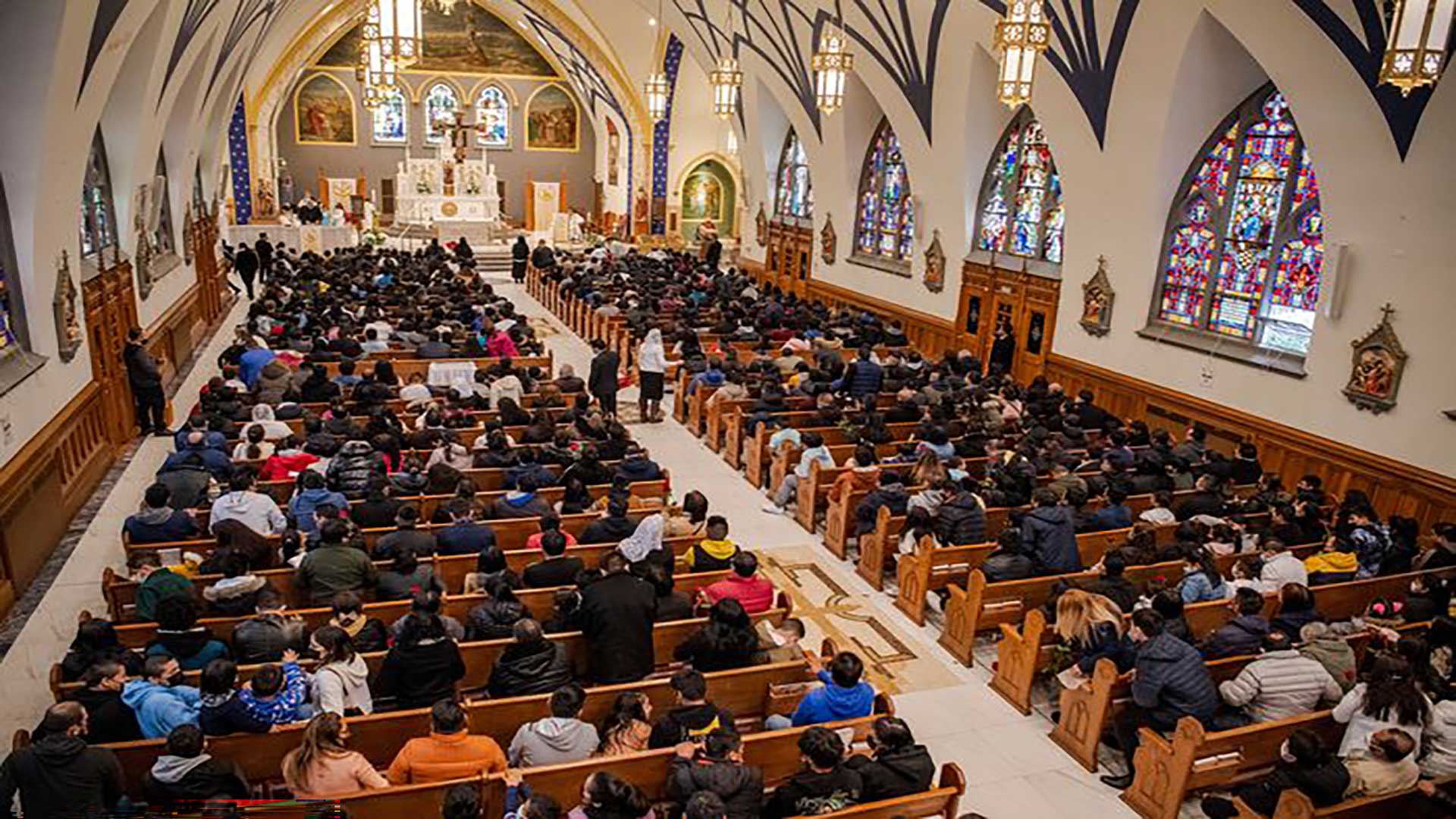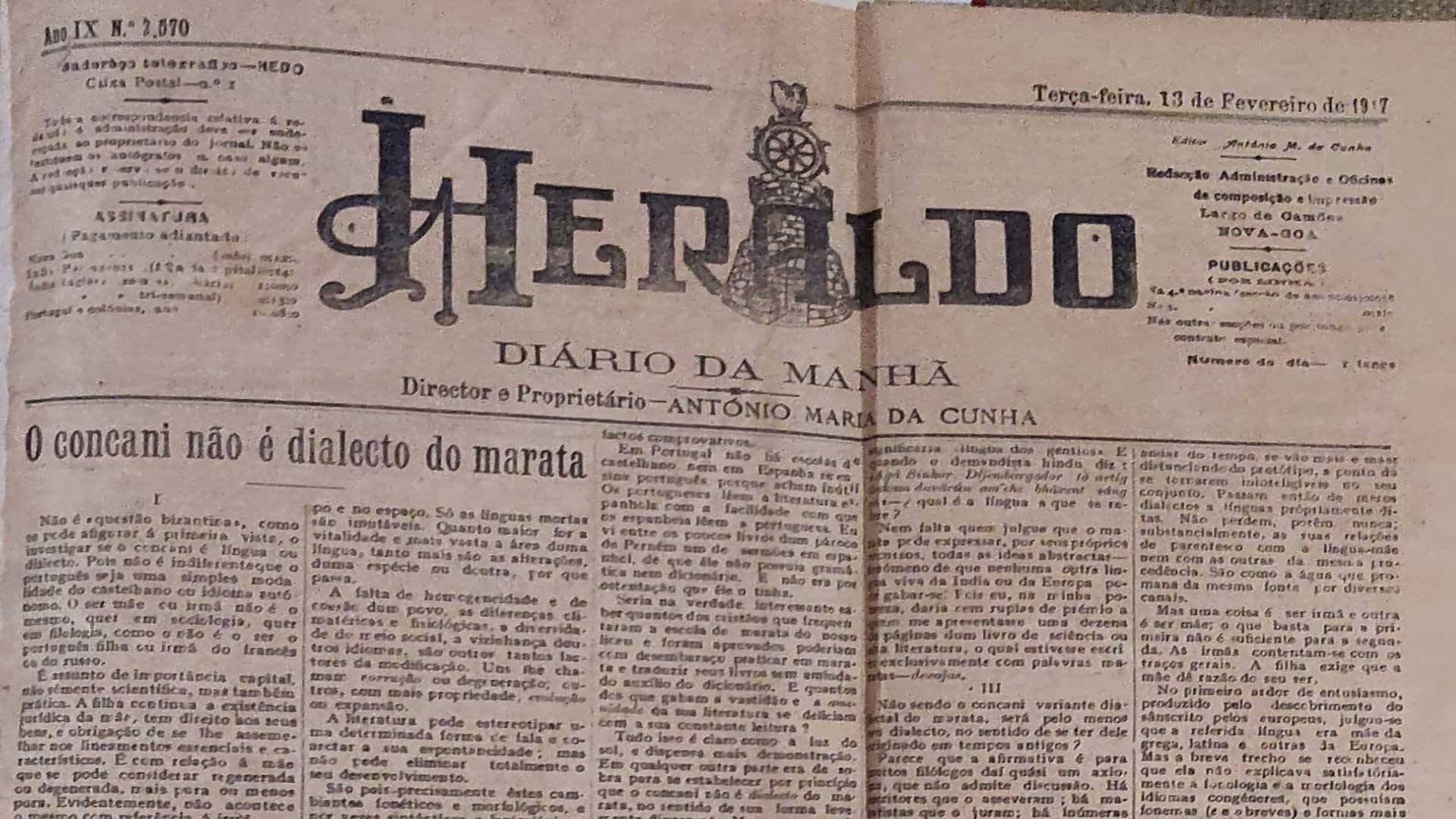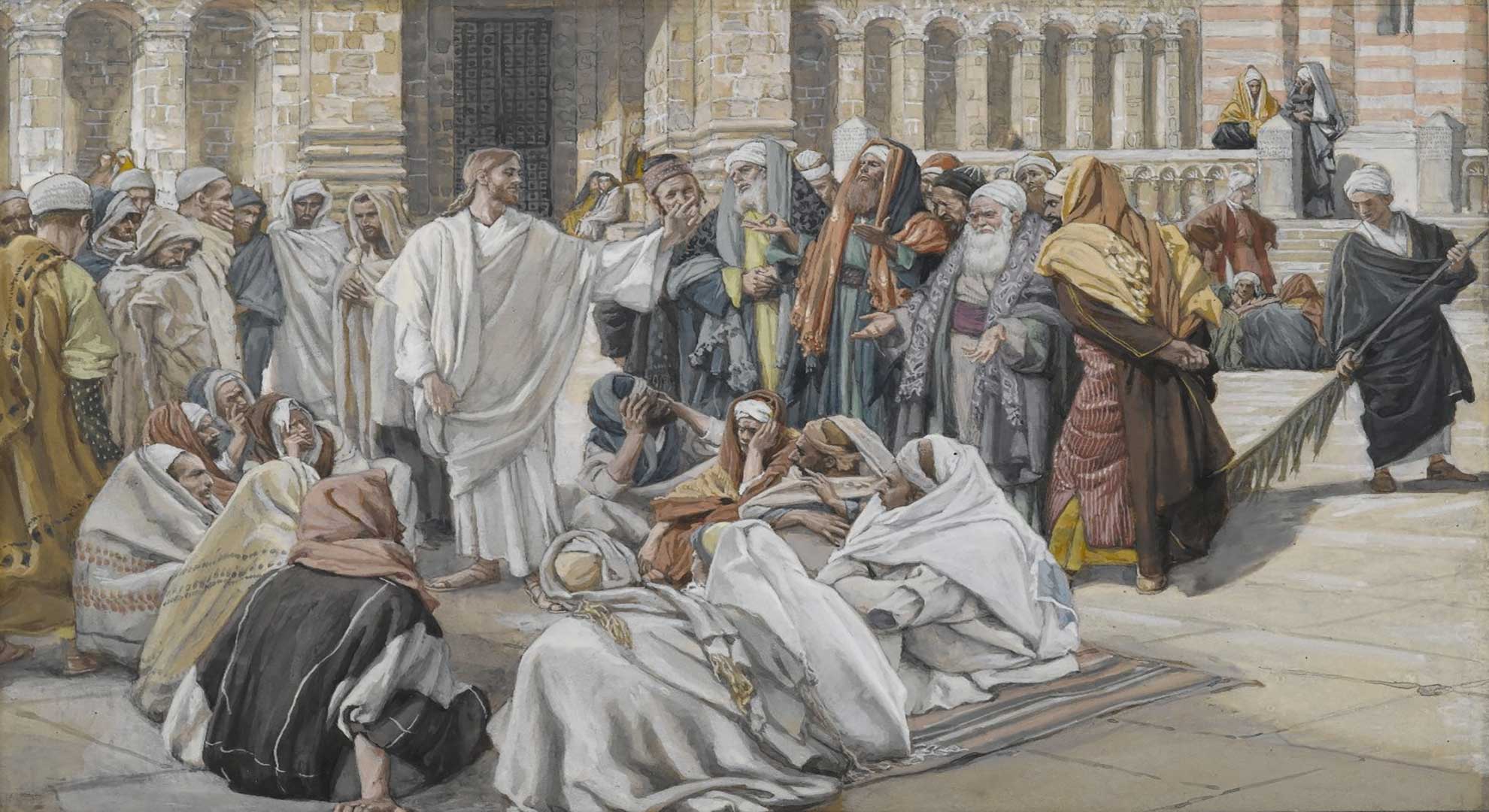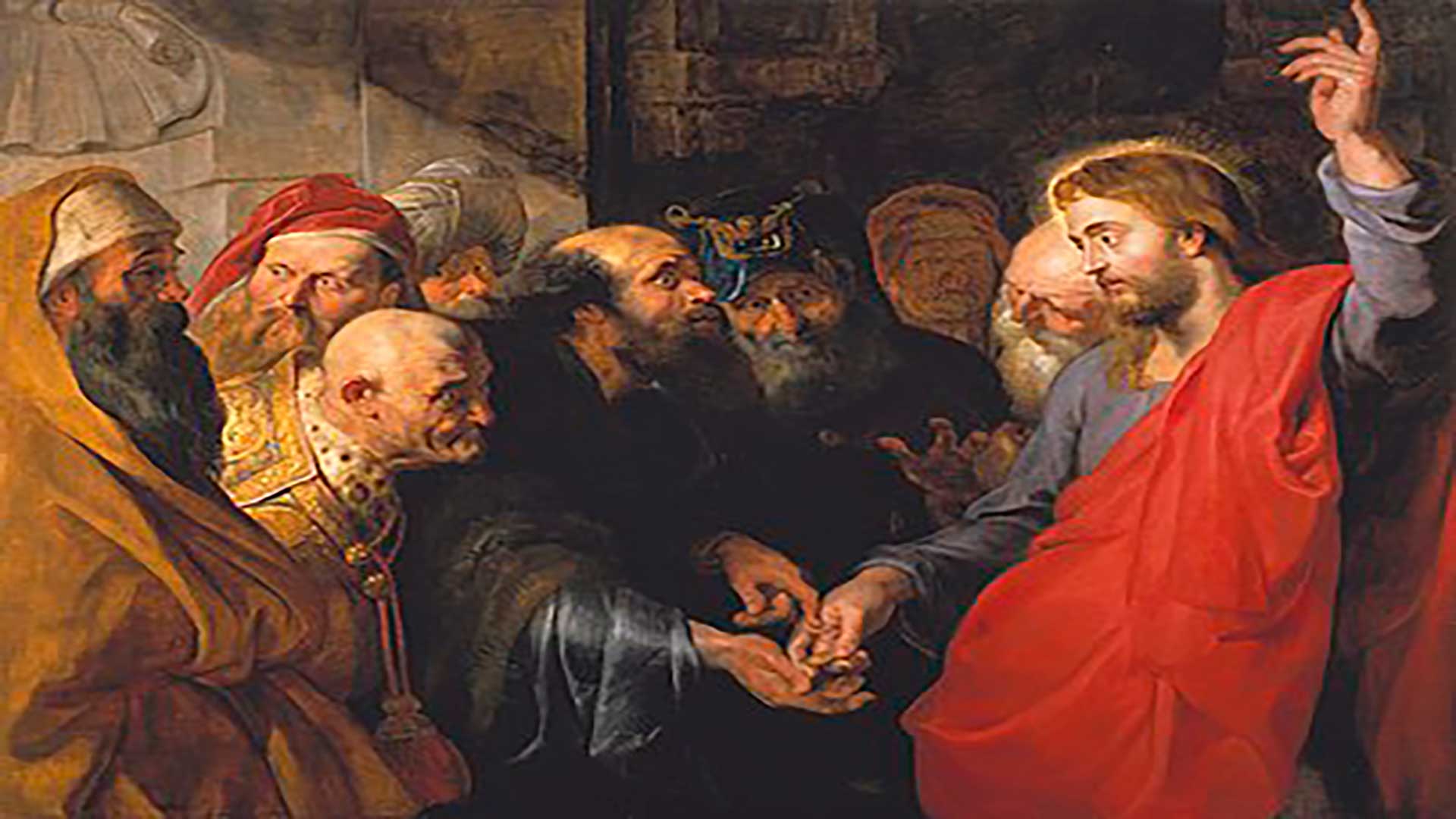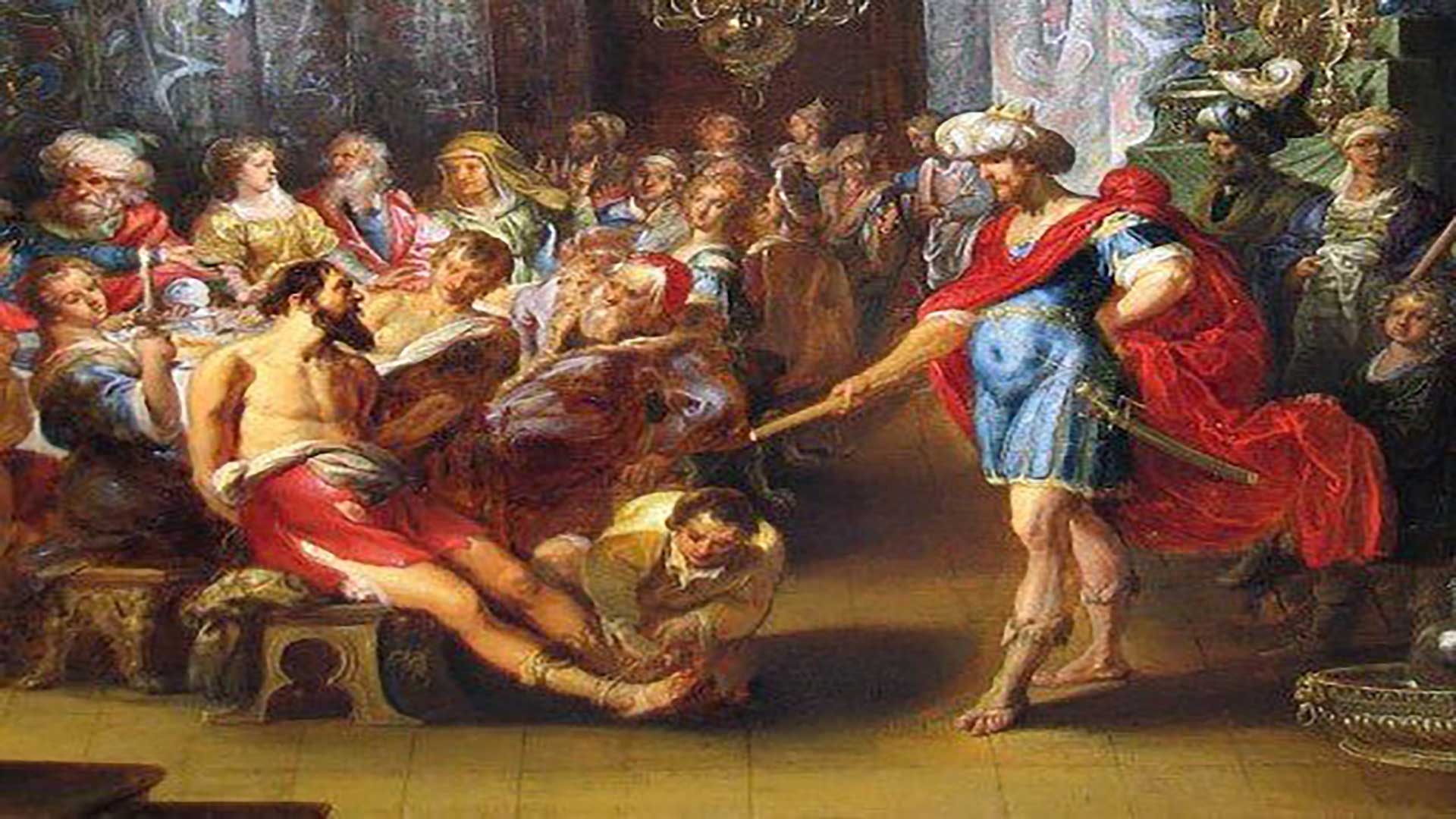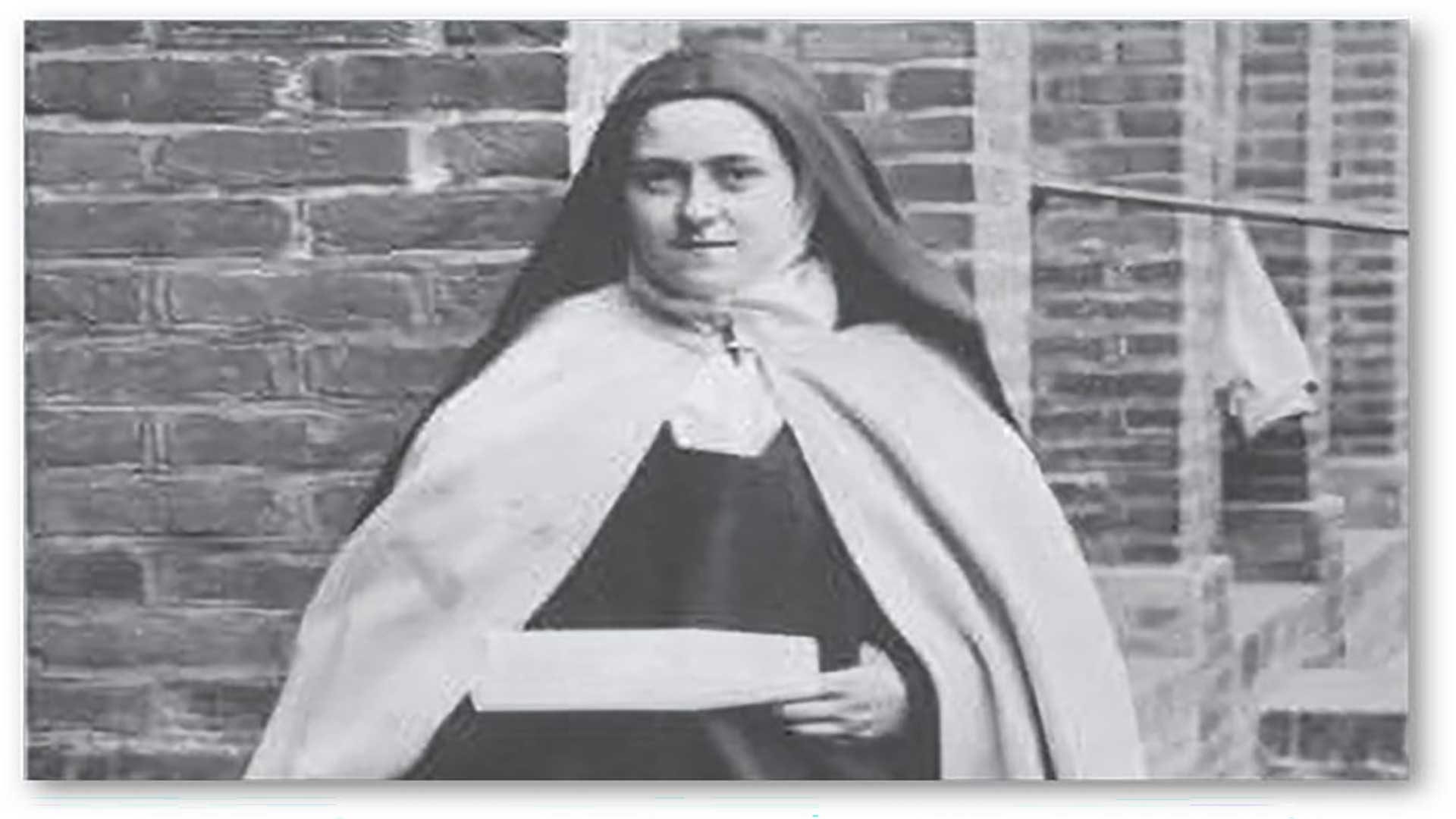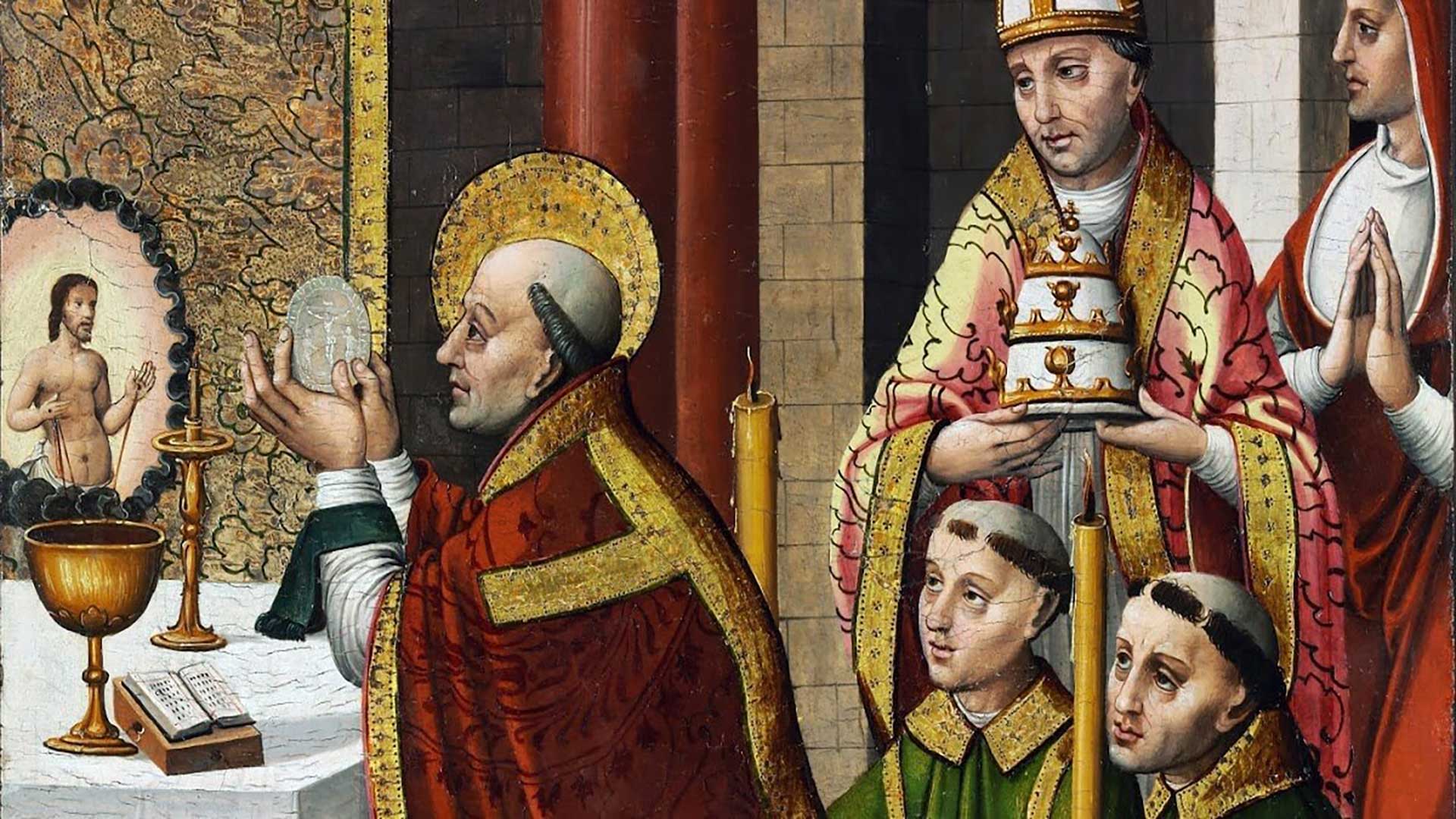Authentic and Zealous
The Temple of Jerusalem is an important reference point. The one built by Solomon was destroyed in 587 B.C. when the Babylonians torched the city and sent the Judean leaders into exile to Babylon. In 539 B.C. Cyrus, king of Persia, absorbed the Babylonian empire and permitted the Jews to rebuild the temple in their land. On reconstructing the temple in c. 515 B.C., the Jews enjoyed an era of peace but soon became apathetic as regards the divine cult.
Hence, in the First Reading (Mal 11, 22 – 12, 2), Prophet Malachi (the last in the traditional list of minor prophets) censures the people and more so the priests, who were leaders and interpreters of the Scriptures. His discourse begins with an accusation and ends with a sentence: “O priests, this command is for you. If you will not listen, if you will not lay it to heart to give glory to my name, says the Lord of Hosts, then I will send the curse upon you.”
No doubt, we could extend this to ourselves, for we all have the priestly vocation; but here Malachi addresses the sacramental priesthood in particular. His words make one stop in one’s tracks; hence, nothing more dare I say except hope and pray that we turn a new leaf.
Whereas Malachi observes that the priests have been teaching wrong doctrine and misguiding the people, in the Gospel (Mt 23: 1-12) Jesus states that the scribes and the Pharisees have been teaching the law but failing to practise it. They who sat on Moses’ seat – as teachers and leaders – had the moral duty to practise the law (“heavy burdens” or duties) that they imposed on their people. Jesus draws a long list of tricky situations involving those erring leaders and ends with a startling principle: “He who is greatest among you shall be your servant; whoever exalts himself will be humbled, and whoever humbles himself will be exalted.”
Meanwhile, what did Jesus mean by those intriguing words, “father” and “master”? Is there a ban on their use? Jesus only reminds us that none should usurp the authority that belongs to God, our Father, and Himself, our Divine Master.
St Paul in the Second Reading (1 Thes 2: 7-9, 13) states what it takes to be an apostle: self-sacrifice. However, we must realise that we should not exploit the apostle’s gentleness and mercy; on the contrary, the people ought to show authenticity, fairness, reciprocity, sincerity, gratitude.
Our human condition, fragile as it is, does not make life easy, nor does the Word of God easily sink into us and transform us. That is why what happened millennia ago repeats itself. On the other hand, we must not be discouraged but persevere in letting the Word bear fruit in us. Our reference point is no longer the physical Temple of Jerusalem; Jesus teaches us to live as living temples of God, authentic and zealous.
Konkani is not a dialect of Marathi - 2
Part 2 of "O concani não é dialecto do marata", by Mgr. Sebastião Rodolfo Dalgado, in Heraldo, Pangim, Goa, Year IX, No. 2570, 13 February 1917, p. 1)
II
‘Dialect’ is a rather vague and ambiguous word. It is taken in several senses, the two most common being: tenuous grammatical and vocabulary variants of the same language within its area, derivation, usually immediate, from one idiom to another.
Every living language is subject to changes, big or small, in time and in space. Only dead languages are immutable. The greater the vitality and the wider the area of a language, the more the changes of one kind or another that it undergoes.
The lack of homogeneity and cohesion of a people, the climactic and physiological differences, the diversity of the social environment, the proximity of other languages are other factors of modification. Some call that corruption or degeneration, while others more appropriately call it evolution or expansion.
Literature can stereotype a particular form of speech and limit its spontaneity; but it cannot totally prevent its development.
So, it is precisely these phonetic and morphological, and sometimes syntactic and lexicological, variations that constitute dialects in a linguistic space. Their differences in time are known as "phases".
The Portuguese language is regarded as uniform throughout the continental territory. This does not preclude dialectal peculiarities of varying importance in different provinces or districts. Such particularities have been the object of scientific study in modern times, by philologists of the calibre of Dr José Leite de Vasconcelos.
The Konkani language too (so disparaged for this reason) has similar province and class related varieties. Bardez speech is not identical to that of Salcete, nor is the speech of Sawantwadi the same as that of Kanara.
If such a flaw is of major significance, as some philologists there take it to be, other more cultured languages are not exempt from it. Italian has more than twenty dialects, remarkably differentiated; French, at least fifteen, and modern Greek, more than seventy.
But then again, it is evident that such dialects do not destroy the unity of the language. They are like petals of the same flower, like leaves of the same branch. And hence, those who speak different dialects follow each other without any difficulty, when they converse, and they easily understand common literature. The opposite is true of languages and their literatures.
Now, since Cunha Rivara it has been repeated that it is easier for a Portuguese to understand a Castilian than for a Goan to understand a Maratha, and vice-versa. And nonetheless, there are still enlightened spirits in Goa who are not convinced of this palpable truth nor do they wish to do a check for themselves, which is easy to access. They are content – I am not sure if for erudition or for convenience – to rely on the opinions of various authors, not all of them recommended for competence in the matter. Some are foreigners, who have learnt Konkani superficially; others have lived in times when glottology and dialectology made little progress. And they were all were fascinated to note the analogies, but failed to justify the discrepancies.
I can say from experience that I could more easily understand Italian by its likeness to Portuguese than I could colloquial Marathi by its similarity to Konkani. On my first trip to Europe, on an Italian steamer, an Englishman had me as his interpreter to communicate with the cabin boys on board.
And my observation matches. There is no need to pile up supporting facts.
In Portugal there are no schools teaching Castilian nor is Portuguese taught in Spain, as they consider it pointless. The Portuguese read Spanish literature as easily as the Spaniards read Portuguese literature. Among the not many books that a parish priest of Perném had, I saw one of sermons in Spanish, of which he had neither a grammar nor a dictionary. And it was not for show that he had the book.
It would indeed be interesting to know how many of the Christians who attended the Marathi school at our lyceum and graduated would be able to communicate easily in Marathi and translate books without undue aid of a dictionary. And how many of those who praise the vastness and the amenity of its literature are delighted to read it regularly?
All this is clear as daylight, and needs no further demonstration. In any other place this would suffice to establish in principle that Konkani is not a dialect of Marathi, in the sense of its slightly divergent form. But what would be incontestable truth to others, in Goa quite unsurprisingly finds astute opponents, who by hocus-pocus seek to prove that white is black.
It is not without reason that Tavernier wrote in 1676 (Voyages, 1712 edition, III, p. 159): "As for trials, they never come to an end; they are handled by the canarins, natives of the country who practice the professions of solicitors and procurators, and there are no people in the world more cunning and subtle."
Similarly, a very meticulous judge of the Supreme Court told me, not many months ago, that libels from India, besides being longwinded and confused, were not much commended for legal erudition but rather abounded in petty objections and twists to muddle up the truth and obfuscate the law. What the cradle bestows only the tomb takes away.
There are yet those who even grudge Konkani the status of a dialect, calling it simply a "corruption of Marathi". But what is not corrupt, in some sense or other? We ourselves have been corrupt since our first parents’ prevarication. Omnis caro corruperat viam suam, says the Scripture about the antediluvian people. And that we did not get any better after the catastrophe is indicated by events unfolding before our eyes.
If by corruption is meant deviation from the original type, Portuguese, French and Italian are corruptions of colloquial Latin, just as Latin, Greek and Gothic are corruptions of the Proto-Aryan. Gujarati, Hindi and Bengali are corruptions of Sanskrit, or, strictly speaking, of archaic Prakrit languages, just as Sanskrit and Iranian are corruptions of the Indo-European language, which in turn would be a corruption of some other idiom. Corruption of languages is coeval with, if not earlier to, the tower of Babel. However, what to laypersons in the matter appears to be corruption, to those who know is actually evolution.
Of course, Marathi is an exception, for apparently it is in a class apart among the languages of India and the world. A native philologist regarded her as a "beloved daughter of Sanskrit" as though he had witnessed her mother’s caresses; some other decrees her to be Goa’s “national” language, as though this territory were a nation or now under Bhosale rule. Another raises it to the status of a vernacular language – of “our language”, to the Goans! But by what name is Konkani known in the country’s speech? one may ask a child. Certainly not Konkanni bháx, for to the Christians konknnó means “gentile”, and konknni bháx would mean “language of the gentiles”.
And when the Hindu litigant says, ‘Aga Sinhor Dijembargador tó artig âmkam duvârún am’che bhâxent sáng ga’ – which language is he referring to?
Nor is there lack of those who think that Marathi, by its own resources, can express all abstract ideas – a phenomenon that no other living language of India or of Europe can boast of. And I, in my indigence, would give one hundred rupees as a prize to whoever showed me some ten pages of a book of science or of high literature written exclusively using Marathi words – dexajas.
Love: for God’s sake
As we continue reading from the Gospel of St Matthew (22: 34-40), we see how Jesus counters his adversaries. He had just finished silencing the Sadducees on the question of the resurrection of the dead, when he was assailed by the Pharisees. They wanted Him to pronounce on the ‘Great Commandment in the law’. Jesus assigns equal importance to the two commandments known in the Old Testament and focusses on them the entire content of the law. Loving God with our heart, mind and soul is the first and great commandment, He said, and by the second, which is like it, we ought to love our neighbour as ourselves.
But who is our neighbour? From the parable of the Good Samaritan, we learn that our neighbour is essentially a person in need. In our materialistic age, we think of money as the need, but that simply is not the case. Very often, the other yearns for our love, our time, just a little word or a listening ear. It may not even require our physical presence; sometimes a tinkle, a WhatsApp message, a comforting thought from afar, could save the day. We will never know in advance who we are called to serve, when and how. But serve we must; and those that we serve are our neighbour, and service is the expression of our love.
But then again, what is love? Someone has said: “Love is the most beautiful thing to have, hardest thing to earn and most painful thing to lose”; but far from defining, it makes love seem elusive. In 1 Corinthians 13: 4-7, some of love’s attributes make it palpable: “Love is patient; love is kind; love is not envious or boastful or arrogant or rude. It does not insist on its own way; it is not irritable; it keeps no record of wrongs; it does not rejoice in wrongdoing but rejoices in the truth. It bears all things, believes all things, hopes all things, endures all things.”
Palpable but not defined. That is because love is a many-splendored thing, largely misunderstood and therefore clichéd, especially in our times. Several Catholic thinkers have dwelt upon this inexhaustible topic, and more recently, in his book The Four Loves, C. S. Lewis has distinguished between Affection, Friendship, Eros and Charity, showing how one merges into another, and how one can even become another. More importantly, he underlines that the first three – human loves – can be tainted if not accompanied by the sweetening grace of divine love, Charity. And, as St Ignatius put it: “Love is shown more in deeds than in words.”
We understand love more concretely through the First Reading (Ex 22: 21-27) in which God forbids us to wrong a stranger or oppress him; to afflict a widow or orphan; or to torment a poor man. They are personae miserabiles – people in difficult social, economic and juridical situations. Easing their situation constitutes works of mercy that our Catechism speaks of: “charitable actions by which we come to the aid of our neighbour in his spiritual and bodily necessities.” Instructing, advising, consoling, comforting, forgiving and bearing wrongs patiently are spiritual works of mercy; the corporal include giving alms to the poor, feeding the hungry, sheltering the homeless, clothing the naked, visiting the sick and imprisoned, and burying the dead. (Cf. CCC, 2447)
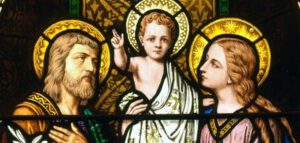
Christian civilisation traditionally grew up on those sublime teachings and achieved a healthy balance between body and spirit down the ages. But alas, with the overpowering rise of godless modernism, haven’t some people grown weary of the teachings that had once nourished them? The consequence of such degradation has been staring us in the face. And with the recent opening of the gates of Europe to hordes of people (refugees, asylum seekers, migrants), some of whom are avowedly spiritual enemies of Christian civilisation (or what is left of it), shouldn't it be reexamined whether the physical needs of the neighbours are more crucial than the spiritual wellbeing of the household?
St Paul was extremely concerned about the spiritual health of his people. In the Second Reading (1 Thes 1: 5-10), he is all praise for the example that the Thessalonians have set to the believers in Macedonia and Achaia. The Word of God sounded forth from them like clarion trumpets and their faith went forth everywhere. God was their highest good, from which the good of neighbour flowed. Hence the Apostle is happy to note how they “turned to God from idols, to serve a living and true God, and to wait for His Son from Heaven, whom He raised from the dead, Jesus who delivers us from the wrath to come.”
Would it be wrong to see God’s wrath in terms of environmental disasters and wars? Aren’t we witnessing veiled religious and spiritual wars? Spiritual warfare is a fact of life; we cannot wish it away. So, it would be necessary to reflect on how far enemies of Christianity can be our ‘neighbours’!... Can they be allowed to hack at the very foundations of Christian civilisation… and we foolishly call it ‘love’? We cannot forget our duty to love God above all things, and the neighbour for God’s sake.
Unto God and Caesar
This Sunday’s Gospel text (Mt 22: 15-21) picks up where we left off last Sunday. The wedding feast parable was a subtle attack on the Jewish authorities. Such was their hatred of Our Lord that even two divergent groups did not think twice before they got together to checkmate Jesus: Herodians, a political party at least outwardly friends with the Roman authorities and indifferent to religion; and the Pharisees, puritanical as regards the Jewish law and traditions, and opposed to Roman rule. Devising a ploy from which it seemed impossible for Jesus to escape, they got some young scholars to pose the following question with guileless simplicity: “Is it lawful to pay taxes to Caesar, or not?”
Jesus was faced with a false dilemma, for to condemn the Roman tax would be to incur the vengeance of those pagan rulers; to consider the tax legitimate would anger the Jews, who had always resented the Roman rule. Seeing through the trick, Jesus asked for a coin, pointed to the image and inscription on it, and promptly replied, keeping his tone light and matter-of-fact: “Render therefore to Caesar the things that are Caesar’s, and to God the things that are God’s.” This exposed the hypocrisy of the Pharisees, who used Roman currency for trade and commerce, yet grudged the payment of tax; so too the Herodians, who could easily be charged with detracting against the Roman authority.
Jesus thus made it clear that while political masters seek taxes God seeks souls. Or as Fulton Sheen points out, “Once again He was saying that His Kingdom was not of this world; that submission to Him is not inconsistent with submission to secular powers; that political freedom is not the only freedom. To the Pharisees who hated Caesar came the command: ‘Give unto Caesar’; to the Herodians who had forgotten God in their love of Caesar came the basic principle: ‘Give unto God.’”[1]
Does that amount to serving two masters? No. The two masters that we cannot serve at the same time are God and Mammon (pleasures of the world included). These we cannot serve alike because they are things opposed to each other; to serve one we often (have to) forego the other. For instance, when it comes to running a business and amassing wealth we may think that ends justify the means, sacrificing even religious worship on Sundays and holy days. On the other hand, serving a legitimate temporal authority is necessary for the smooth functioning of society; it is a different matter if the authority acts immorally and illicitly, but our basic aim should always be to align earthly administration with divine law.
In the ultimate analysis, everything belongs to God, doesn't it? Hence, in the First Reading (Is 45: 1, 4-6), God makes it clear that He is the Lord and there is no other. He is always in control and exercises dominion even over those who do not acknowledge Him. For instance, God had the Persian king Cyrus put an end to Babylonian rule and free the Jews. ‘Anointed’ were the kings of Israel alone, but since Cyrus as God’s instrument in the liberation of Israel is regarded as anointed, too.
To pay God tribute, we ought to sing His praises and “tell among the nations His glory and His wonders among all the peoples.” That is to say, we have to evangelise. We can do so from wherever we are, whatever be our station in life. We can do so without worrying about what we are going to say, for then the Holy Spirit takes charge and guides us. In fact, we can go forth and preach through our actions rather than our words: we can engage in the apostolate of presence. “Preach the Gospel at all times, and if necessary, use words” is a quote commonly attributed to St Francis of Assisi.
But alas, on World Mission Sunday being observed today, it is imperative for us to check the nature and state of our Missions. Is evangelisation happening in reality, that is to say, are we genuinely proclaiming the Gospel message, or is it only an exercise in social service? This day is marked by a special collection taken up to support "missionary projects", but are these the same pious projects that you and I have in mind? Have a look at the links below, to see whether we are "converting" others or "perverting" ourselves! Hence an appeal was recently made by a Lay Catholic faithful organisation, to the Bishops of India, to stop the menace of theological errors being spread under the pretext of "inculturation": https://youtube.com/shorts/kagBOaVfIj0?feature=share and https://www.saveourfaith.com/
In the Second Reading (1 Thes 1: 1-5), St Paul, on behalf of his missionary companions Silvanus and Timothy, and himself, informs the Thessalonians of how he and his own pray and thank God for their “work of faith[2] and labour of love and steadfastness of hope in our Lord Jesus Christ.” Such graces are divine gifts, which we should always appreciate. Just like the Thessalonians, who were newly formed into a faith community, continued to be challenged by paganism all around them, we Christians in the contemporary world are continually confronted by innumerable temptations and traps from a neo-pagan world. So, the lesson to learn is that what we give unto Caesar should by no means prevent us from giving unto God.
----------
[1] Fulton Sheen, Life of Christ (Bangalore: Asian Trading Corporation, 1984), p. 203
[2] This throws up the controversial topic of faith without works.
The Elect to Eternal Life
The Readings of today provide at least a faint background to the goings-on in West Asia, a region long steeped in violence and terrorism. While the Jews claim that the recent attack on Israel has been the deadliest for them since the German Holocaust, one can’t help but think of the Prince of Peace who once walked that way with a promise of great hope for the human race!
God made many several covenants with the people of Israel. In the First Reading (Is 25: 6-10) we note His promises of freedom and celebration on Zion, the mount on which the city of David was built. In its Temple God has promised to unite the peoples of the world. There they will live in harmony, putting behind them pride, hatred, injustice and war. With joy and life replacing mourning and death, the people will sing, “This is the Lord; we have waited for Him; let us be glad and rejoice in His salvation.”
The Lord is none other than Christ our Saviour. David’s Psalm 23, too, famously reminds us that in good times and in bad, in sickness and in health, the Lord is our Good Shepherd. Those who trust in Him shall not want but enjoy green pastures, restful waters, sufficient repose and a joyful spirit. For He is the God of wisdom, strength and kindness; who guides us, walks by our side, comforts, feeds and anoints us. The Psalm spoke warmly to the heart of pastoral Israel.
Jesus’ parable in today’s Gospel text (Mt 22: 1-14) brings the images of the Old Testament closer to us by comparing the Kingdom of Heaven to a sumptuous wedding banquet. The first invitees (representing the Jews, who were the first to hear God’s Word) failed to honour the king’s (God’s) invitation: they not only went about their own petty tasks, but even killed the king’s messengers! Much like the owner of the vineyard, in last Sunday’s parable, the king sent his troops to destroy the murderers and burn their city. Finally, he extended his invitation to the rest of the world (thus announcing the universality of the Kingdom of God), and the wedding hall (His Church) was full.
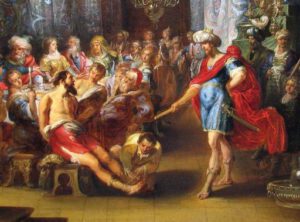
But then again, who is the “man who had no wedding garment”? In those days, all guests were supplied with a robe to wear at the banquet; but here was a stranger, probably a crasher, who either had no robe or had failed to wear one. Not to be taken for a poor man but a guest flouting the norms, he is, quite expectedly, shown the door. In like manner, why won’t those who disregard the Commandments be bound hand and foot and cast into the “outer darkness” (hell), where men “weep and gnash their teeth”?
Jesus makes it clear that the divine invitation is gratis but also exacting. It is the wearing of the garment of Christ in a worthy manner that will entitle us to the heavenly banquet. Even though He has invited all into His tent, only those who have fulfilled the stipulated conditions will be chosen to dine with Him.[1] It is ironical that even at the Last Supper this truth had not dawned on the Apostles!
For that matter, did the Jews remember the parable when Jerusalem and the temple were reduced to rubble in 70 A.D.? And will they now turn a new leaf? God, who is slow to anger and abounding in love, is never discouraged. He continues to make overtures of friendship. Hence, quite significantly, the Jews, themselves a persecuted and dispersed lot, are gathering back in their land after two millennia in exile. This is not to absolve their governments from their continued violence, which is the handiwork of evil men in the Holy Land. Be that as it may, will the Jews finally seize the day and turn to the True God?
Only a profound change of heart can bring about a transformation in the world at large. St Paul refers to the necessary dispositions, in the Second Reading (Phil 4: 12-14, 19-20). He who had received substantial material help from the Philippians was not overly concerned about how he should be living. The message he wishes to highlight is that God is the great Provider of our every need, according to His riches, in marvellous ways, in His Son Jesus. So, when we are with the Good Shepherd, we have nothing to fear; when the Good Lord is with us, none can be against us.
Let us therefore never decline a good invitation; and if it be a divine call, let us accept it wholeheartedly and be steadfast, so as to be counted among the elect to eternal life.
------
[1] This parable has a parallel only in Luke 14: 16-24.
Goencheo Mhonn'neo - IV | Adágios Goeses - IV
Segue uma quarta lista de adágios,[1] extraídos do livro Enfiada de Anexins Goeses, obra bilíngue (concani-português), de Roque Bernardo Barreto Miranda (1872-1935)[2].
Tradução literal | Tradução livre
Fôttquiryachém nãy sot, ani pav’sachém nãy vot. | Fottkireachem nhoi sot, ani pavsachem nhoi vot.
Não se deve fiar num homem mentiroso, como na luz do sol, no tempo invernoso.
Donn hoddyen’ar pãyem dovorlyar doriyant poddta. | Don hoddeamni paim dovorlear doriant poddta.
Aquele que firmar os pés sobre dois barcos, mergulha-se no mar.
Quem faz dois negócios opostos
ou claramente incompatíveis,
expõe-se a desastre e desgostos.
Natçunk nenom teká, angonn vankddém. | Nachunk nennom taka angonn vankddem.
A quem não sabe dançar, co’arte e geito,
o terreiro é que está torto, imperfeito.
Sempre um ignorante,
que tem petulância,
lança no outro as culpas
da sua ignorância.
Bhirant assá, punn lâz nam. | Bhirant asa, punn loz na.
Tem medo (que seja punido)
mas não tem vergonha (o atrevido).
Cat mely zalyar, zat melâ na. | Kat mell’li zalear, zat mellna.
Por se tornar a tez escura,
a casta não se desnatura.
A procedência de alguém
não se aquilata p’la cor
da tez que a pessoa tem.
------------------------
[1] Cf. terceira lista, Revista da Casa de Goa, Série II, No. 21, março-abril 2023, pp. 59-62
[2] Roque Bernardo Barreto Miranda, Enfiada de Anexins Goeses, dos mais correntes (Goa: Imprensa Nacional, 1931), com acrescentamento dos adágios na grafia moderna, pelo nosso editor associado Óscar de Noronha.
Publicado na Revista da Casa de Goa, Serie II, Set-Out 2023, No. 24, pp. 45-46
Labouring in the Vineyard
On a third consecutive Sunday[1] we are captivated by the image of the Vineyard. In fact, since times immemorial, prophet after prophet has made use of this charming feature of Israel’s landscape to make a valid point. With grapes as an agricultural item playing an important role in the economy, society, and even in the faith traditions of the Jews, and later of the Christians too, it is no wonder that the Holy Bible abounds in parables relating to the Vineyard.
Bible commentators say that one of the best-known uses of the vineyard symbol in the Old Testament occurs in Isaiah, of which today’s First Reading (Is 5: 1-7) provides the core: “The vineyard of the Lord of hosts is the house of Israel.” Here, Isaiah recalls how the owner (who represents God) tenderly cared for his vineyard (His people Israel). And yet, how did the vineyard respond? By producing wild grapes (unruly behaviour or sin). It is quite natural that the owner should destroy such worthless plantations (quite clearly, symbolic of retribution for sinful human behaviour).
Historically speaking, the retribution that Isaiah hinted at was the Assyrian military attack that the southern kingdom, Judah, was anticipating, just as the northern kingdom of Israel had experienced earlier. The Prophet’s argument was that God had punished Israel for their unfaithfulness; and Judah could well avert its share of problems by changing their ways and strictly following God’s law. Yet, Isaiah is not all that hopeful, for God had once looked for justice but witnessed bloodshed; righteousness, and alas, beheld a cry.
Jesus’ parable in the Gospel text (Mt 21: 33-43) uses the vineyard symbolism with a more palpable human element: it replaces wild grapes with wild tenants. Since they have beaten, stoned, abused and killed the owner’s servants, and even his son, all of whom he had dispatched, in quick succession, he “put[s] those wretches to a miserable death, and let[s] out the vineyard to other tenants who will give him the fruits in their seasons.”
 How loaded with meaning! While the owner here still symbolises God, and the vineyard His people Israel, the ominous part is that the tenants represent officialdom and religious authorities to whom souls have been entrusted. Have they been reliable stewards of God’s property? The son there is the Son of God, Jesus Christ our Lord. Did Israel respect Him? No; they took Him who was the heir, cast him out of the vineyard and killed him. And what about us today? We still do the same every time we reject Him and through other sinful acts.
How loaded with meaning! While the owner here still symbolises God, and the vineyard His people Israel, the ominous part is that the tenants represent officialdom and religious authorities to whom souls have been entrusted. Have they been reliable stewards of God’s property? The son there is the Son of God, Jesus Christ our Lord. Did Israel respect Him? No; they took Him who was the heir, cast him out of the vineyard and killed him. And what about us today? We still do the same every time we reject Him and through other sinful acts.
Alas, while many have embraced the Faith, not all have stayed faithful. Thus, after Israel rejected Jesus, the Faith moved to the West, where it flourished for centuries, fulfilling the words of our Lord and Master: “The kingdom of God will be taken away from you and given to a nation producing the fruits of it.” But, eventually, that part of the world too, after reaping the fruits of Christian Civilisation, was ungrateful and failed to cling to the old rugged Cross. With ever-growing affluence and misplaced confidence, the West slowly but steadily dropped their guards, and finally apostatised. And most worrisome is the fact, as Pope Paul VI put it, way back in 1972, that “the smoke of Satan has entered the Church of God.”
Jesus is that rejected stone whom God has destined to be the cornerstone of salvation: “The very stone which the builders rejected has become the cornerstone; this was the Lord’s doing, and it is marvellous in our eyes.” Presently, the greatest hope comes from the Asian and African continents. For instance, in a nascent sovereign country like East Timor, the people have chosen the Catholic Faith, and this has gone from strength to strength (20% - 98%). For their part, several African nations have been among the staunchest supporters of Catholic morality and discipline, as seen from their brave rejection of homosexuality, transgenderism, divorce, ordination of women, and so on. Their Cardinals assert themselves at the Vatican and their people at home are among those who show God’s Vineyard as an image of hope.
Finally, even while social, political, economic and environmental issues on our fragile planet are beginning to assume apocalyptic proportions, we must be people of hope – not grapes of wrath but of sweetness. Elsewhere in the Bible, Jesus says, “I am the Vine, you are the branches” (Jn 15: 5). In the Apostolic Age there was a question on whether values of the Greco-Roman pagan civilisation could be absorbed. In response, St Paul appealed to the Philippians to exercise discernment about what is true, honourable, just, pure, lovely, gracious, excellent and worthy of praise. One more reason to take seriously the Apostle of the Gentiles’ exhortation in the Second Reading (Phil 4: 6-9): “Have no anxiety about anything, but in everything by prayer and supplication with thanksgiving let your requests be made known to God. And the peace of God, which passes all understanding, will keep your hearts and your minds in Christ Jesus.”
------------------------
[1] As an exception this year, the Readings of the twenty-sixth Sunday pertained to the Feast of St Thérèse of the Child Jesus.
Mission of Love
As India is a Mission field, the Mass Readings of this Sunday pertain to the Feast of the Patroness of the Missions: St Teresa of the Child Jesus and the Holy Face, or of the Little Flower, also known as Thérèse of Lisieux.[1]

Three amazing Carmelite Teresas are saints of the Catholic Church, whose feasts take place between August and October: Teresa of Ávila (1515-1582), Thérèse of Lisieux (1873-1897) and Teresa Benedicta of the Cross, née Edith Stein (1891-1942). The first one was the founder of the Order of the Discalced Carmelites; the second and the third were nuns of the same Order.
St Thérèse of Lisieux was born Marie-Françoise Thérèse Martin, in Alençon, France, the youngest of nine children, five of whom survived childhood and became nuns. Thérèse entered the Carmelite convent at Lisieux, where she was outwardly unremarkable, even a little problematic in the worldly sense, and so initially misunderstood. The story of her spiritual development became well known thanks to her autobiography, written by order of the prioresses. It was published in 1898, a year after her death by tuberculosis, under the title Histoire d’une âme (“Story of a Soul”) and became an instant bestseller.
Thérèse died very young and without ever having left the cloister, yet, two years after her canonisation in 1925, Pope Pius XI proclaimed her Patroness of the Universal Missions, alongside St Francis Xavier, a tireless Jesuit missionary in India and Japan. Why? Because “what makes a missionary are not the legs but the heart!”[2] They are missionaries whose hearts burn with love for Christ and zeal to save souls by love. In fact, St Thérèse is well known for teaching the Little Way of Spiritual Childhood, or simply ‘The Little Way’. It is the sacrifice of ourselves to God’s love, as we learn to seize every opportunity in our daily life to be an example of love. In her words, it is “the way of spiritual childhood, the way of trust and absolute surrender”.
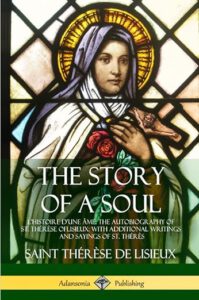 These biographical details help us to understand the choice of today’s Readings. The First Reading (Is 66: 10-14) brings forth an intimate image – that of Jerusalem giving suck like a mother. Jerusalem is not just a physical place but a metaphor for all that Christians look forward to: a paradise to be attained after death. Jerusalem is where the nations of the world will finally come and seek the Lord of Hosts! The Reading is therefore very reassuring for the Missions and missionaries.
These biographical details help us to understand the choice of today’s Readings. The First Reading (Is 66: 10-14) brings forth an intimate image – that of Jerusalem giving suck like a mother. Jerusalem is not just a physical place but a metaphor for all that Christians look forward to: a paradise to be attained after death. Jerusalem is where the nations of the world will finally come and seek the Lord of Hosts! The Reading is therefore very reassuring for the Missions and missionaries.
The Second Reading (1 Cor 13: 4-13) is also pertinent. In her Story of a Soul, St Thérèse writes: “In spite of my littleness, I have the vocation of the apostle. I would like to travel over the whole earth to preach your name and plant your cross on pagan soil. But O my Beloved, one mission alone would not be sufficient for me, I would want to preach the Gospel on all the five continents simultaneously and even to the most remote isles! I would be a missionary, not for a few years only, but from the beginning of creation until the consummation of the ages… O my Jesus, what is your answer to all my follies?”
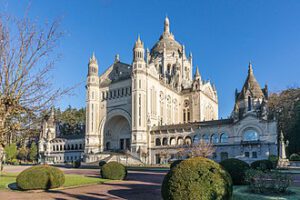
It is said that she got the answer upon meditating on chapters 12 and 13 of St Paul’s First Letter to the Corinthians: she understood that there are different kinds of spiritual gifts, but the same Spirit gives them; that there are different ways of serving, but the same Lord is served. It is like Christ Who is a single body with many parts; and nonetheless it is just one body. Thérèse had what it takes to be an authentic Christian: love, the greatest of the three theological virtues, and the vocation to serve with love from wherever she was.
St. Thérèse loved nature, and often used the imagery of nature to explain how the Divine Presence is everywhere, and how everything is connected in God’s loving care. She saw herself as “the Little Flower of Jesus” (hence, she is a patron of the florists, too), like the simple wild flowers in fields and forests, rather than a brilliant rose or an elegant lily, yet growing and giving glory to God.[3] Apt, therefore, is the Gospel text, in which Jesus says: “Truly, I say to you, unless you turn and become like children, you will never enter the kingdom of Heaven.”
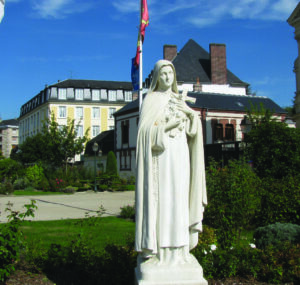
There is no doubt that those who humble themselves will be exalted. In 1997, on her death centenary, she became the youngest person to be designated a Doctor of the Church, and the second Carmelite nun to receive that distinction after St Teresa of Ávila. On this occasion, Pope John Paul II in his Apostolic Letter Divini amoris scientia elucidated what he called Thérèse’s “science of love”:
“The spiritual doctrine of Thérèse of Lisieux has helped extend the kingdom of God. By her example of holiness, of perfect fidelity to Mother Church, of full communion with the See of Peter, as well as by the special graces obtained by her for many missionary brothers and sisters, she has rendered a particular service to the renewed proclamation and experience of Christ’s Gospel and to the extension of the Catholic faith in every nation on earth.”[4]
St Thérèse is thus perfectly justified to be Patroness of the Missions. But how would she look at the Mission field today? This is a very crucial question, better left for another day.
------------
[1] Her feast day in the General Roman Calendar was 3 October, from 1927 until it was moved, in 1969, to 1 October.[2] https://sspx.org/en/news-events/news/why-st-therese-patroness-missions-17832
[3] Cf. https://www.littleflower.org/st-therese/frequently-asked-questions/
[4] No. 10 https://www.vatican.va/content/john-paul-ii/en/apost_letters/1997/documents/hf_jp-ii_apl_19101997_divini-amoris.html
Konkani is not a dialect of Marathi - 1
Part 1 of "O concani não é dialecto do marata", by Mgr. Sebastião Rodolfo Dalgado, in Heraldo, Pangim, Goa, No. 2570, 13 February 2017. Translated from the Portuguese by Óscar de Noronha.
It is not a “Byzantine general’s problem”, as it might appear at first glance, to check whether Konkani is a language or a dialect. For it does matter if Portuguese be a mere modality of Castilian or an autonomous language. Being a mother or a sister is not the same, whether in sociology or in philology, just as it is not the same whether Portuguese be a daughter or a sister of French or of Russian.
It is a subject of capital importance both scientific and practical. A daughter carries on her mother’s existence in law, is entitled to her assets and is sure to resemble her in essential and characteristic features. It is in relation to her mother that she may be considered an improvement or a deterioration, more pure or less pure. Evidently, it is not so with her sister.
All glottologists acknowledge that it has been of utmost value to ascertain that Sanskrit is not the trunk but only a branch of the Indo-European family. Max Muller (Science of Language, 1890, I. p. 194) states: “It was exactly this necessity of determining distinctly and accurately the mutual relation of Sanskrit and the other members of the same family of speech, which led to such important results, and particularly to the establishment of the laws of phonetic change as the only safe means for measuring the various degrees of relationship of cognate dialects, and thus restoring the genealogical tree of human speech.”
For some time now, much has been magisterially written to the discredit of the ill-fated Konkani language; she has been cannily smeared with such dark colours, and exposed to public scorn as being such a horrendous monster, that I believe it opportune to know, clearly and without gimmicks, if she really deserves such treatment.
It is true that the subject has already been dealt with, quite exhaustively, by competent people, especially Dr Gerson da Cunha (The Konkani Language and Literature) and Ramachandra Gunjicar (Sarasvati mandala).
But, from the looks of it, they have not been read or duly studied by many who repeat what they have said about Konkani. Or else, we would not hear so much nonsense laced with disconcerting remarks.
It is also our generally accepted policy that money spent on the purchase of books is a waste. And with regard to Konkani, almost all Goans possess a magical mastery given that they have learned to babble it away on their mother’s lap! If some admit that they fall short, yet argue and come up with far-fetched doctrines, they do so out of false humility.
I do not propose to treat the matter at great length; it would take much time and space. I will gather what others have put forth and indicate the main topics leading to further research by a person well-meaning and eager to learn, that rara avis, if there is any.
(First published in Revista da Casa de Goa, Lisbon, Series II, No. 24, Sep-Oct 2023, p. 15)
God above all else
Today’s Readings are yet another lesson in God’s attributes and the kingdom of Heaven that is far beyond all we can imagine. We for our part have to bloom where we are planted, always giving praise and thanks to God for the infinite variety of benefits, blessings and graces received.
The First Reading (Is 55: 6-9) is taken from the last part of the second Book of Isaiah. After God lets His people go into exile, He calls them to conversion. Their exile, albeit temporary, is a time of trial, not unfamiliar to us in our valley of tears. It is always a good idea, then, to let ourselves be conquered by His boundless love for us. All we have to do is align ourselves with Him, and never seek to bend His teachings to suit our personal tastes.
But alas, instead of thus exercising humility and justice, we see man offending God times without number. Some people equate the natural with the supernatural, while others don’t even acknowledge the supernatural. Yet others talk of justice in the same breath as they abuse their neighbour; they worship power and money, readily becoming slaves to both, not to speak of those who curry favour with false gods and fail to honour the true God they have known since baptism.
The true God, says the Psalm, is highly to be praised and his greatness immeasurable. It is foolish to imagine that we can count equality with Him, yet He is close to all who call Him. And, as St Paul says, if God is for us, who can be against us? (Cf. Rom 8: 31) Hence, not only love for God, it is a rewarding spiritual exercise to cultivate deep faith, hope and trust in Him. There is no better antidote to fear, tension, stress, and all that bedevils us. He who knows how many hairs are on our head takes care of us.
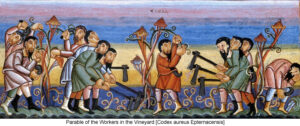
In the Gospel (Mt 20: 1-16), Jesus illustrates the fact that God’s thoughts are not our thoughts, and His ways not ours! The parable He recounts shows not a grudging but a generous God – who treats each according to their needs; a God not mathematical in his dealings but magnanimous – and who never fails us; far from egalitarian but extremely empathetic – who comforts and heals. God is the Lord and Master of the universe; the immense difference between Him and us cannot be wished away.
The Gospel text may be a shocker to the world’s paymasters and economists; yet, it is more about the Kingdom of Heaven, where rewards follow a different economy! We are not to expect God to pay us according to what we perceive to be our merits; in fact, He knows our backstory better than we do. That is how Jesus revealed to the Pharisees that the goodness of God goes beyond human criteria of compensation and that divine reward is not in keeping with salaries paid by human standards.
This applies not only to individuals, but to societies and nations too. Indeed, the verse that reads “the last will be the first, and the first last” underlines the fact that pagan nations, who were the last to be called by God, have taken precedence over the Jews, who had been called first but rejected Him. And some Bible editions add: “For many are called, but few chosen.” A lesson to remember!
Finally, St Paul’s pithy statement in the Second Reading (Phil 1: 20-24, 27) says it all: “To me, to live is Christ, and to die is gain.” Presently in prison, if they let him live, he promises to work for Christ, and if dead, He would be with Him in Heaven anyway. So, he would be happy either way. To us, maybe the woods are lovely, dark and deep – as the Poet would say – and we have promises to keep, and miles to go before we sleep... At any rate, if through our life we have had God above all else, when we finally do sleep, we will be with Him anyway!
Banner: Mass of Saint Gregory the Great by Master of Portillo (1520-1525). https://rb.gy/qhikf
